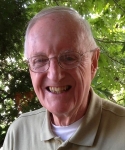
by Joseph Nangle, OFM
Pax Christi USA Ambassador of Peace
Thanks to the epochal initiative of Pope Francis, the archaic terms synod and synodal have become familiar across the Catholic world and beyond. His call for world-wide consultations of Catholics of every stripe to hear their concerns, disagreements and, yes, dreams for the institutional dimension of the Catholic Church has been understood, received and has reached a successful halfway point.

From September 21 to October 2 a group has engaged in a community discernment process to produce the document for the Continental Stage (DCP) of the process.
Father Giacomo Costa S.J., Consultor of the General Secretariat of the Synod, said, “The work of drafting the DCP is entrusted to a group composed of the General Secretary (Cardinal Grech), the Under-Secretaries, and some officials of the General Secretariat of the Synod, as well as the members of the Coordination Committee, in addition to 25 other persons, chosen in such a way as to ensure a certain variety in terms of geographical origin, ecclesial role (diocesan priests, religious men and women, laity), and gender. These 25 ‘experts’ were not chosen to inject their ideas into the DCP, but to be the instrument through which the voice of the People of God from all parts of the world can be heard.”
One measure of the broad acceptance and participation in Synodal conversations has to be the webinar called “A Rainbow Synod, presented on October 2 by the New Ways Ministry. Reflecting the world-wide Synodal participation, the webinar featured representatives from every continent. The presenters, all laywomen and men, gave succinct reports on LGBTQ+ synodal listening sessions from their respective parts of the world.
(A recording of the webinar will be available this month on the New Ways Ministry website.)
The program was inspiring both in its context and content. The fact that LGBTQ+ Catholics took the time and effort to share their perspectives regarding the institutional Church was enormously edifying. One could have understood it had LGBTQ+ Catholics not participated, given the too-often and, sadly, ongoing discrimination suffered at the hands of the Church at every level. Such was not the case. If one word could describe the tenor of these reports it would be hope – firm hope for an inclusive church.
Each speaker gave new meaning to the Catholic designation “the faithful.” No doubt many LGBTQ+ Pax Christi members participated in these consultations.
Two tasks face us as the second and final Synodal process unfolds. The first is to access the document submitted to the Vatican by the U.S. Conference of Catholic Bishops. It is a remarkable report, candid and without defensiveness. For example, at the beginning of its report, the USCCB states: “The sex abuse scandal and the way the Church leadership handled the situation are seen as one of the strongest causes for a lack of trust and credibility on the part of the faithful.” The second task is similar: reading and reflecting on the Document for the Continental Stage which will be made public later this month. It is important to actually read these documents for ourselves rather than rely on social media or the secular press to interpret them for us.
Together with this groundbreaking consultation of the People of God a new “synodal spirituality” is emerging. Within the contours of such a “new grace of the Holy Spirit,” one could point to an obvious sign. In this Synodal process there is a growing sense of the continuation and fulfillment of the Vatican II Council. That event was historical, even revolutionary in its time. It moved the Church from essentially intra concerns to an institution that became outwardly oriented. Recall the final document of the Council, “The Church in the Modern World.” However, Vatican II was essentially hierarchical – top down. The pope and the bishops ran the council and issued its documents.
Today’s Synod has totally upended that method and, as Pope Francis has so often indicated, it is the voices of the people that have to point the direction for the future Church. This development emerges directly from Pope Bergoglio’s roots in the Church of Latin America where its great contribution to the Church is the Theology of Liberation, based on the real-life experiences of “el pueblo.”
We may be entering a new springtime in Catholicism.
Joe Nangle OFM is a Pax Christi USA Ambassador of Peace. As a member of the Assisi Community in Washington, D.C., he is dedicated to simple living and social change. Joe also serves as the Pastoral Associate for the Latino community at Our Lady Queen of Peace, Arlington, Virginia.

Right on. Thank you for expressing it so well.